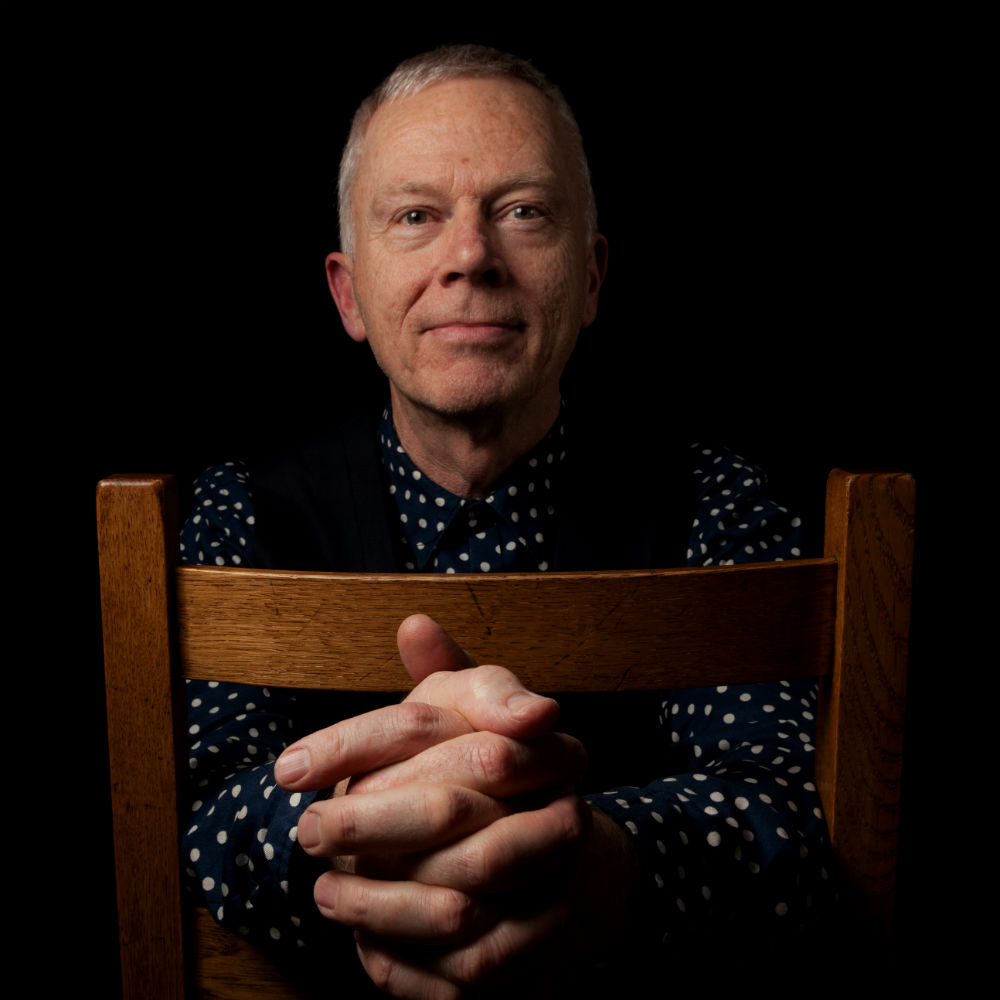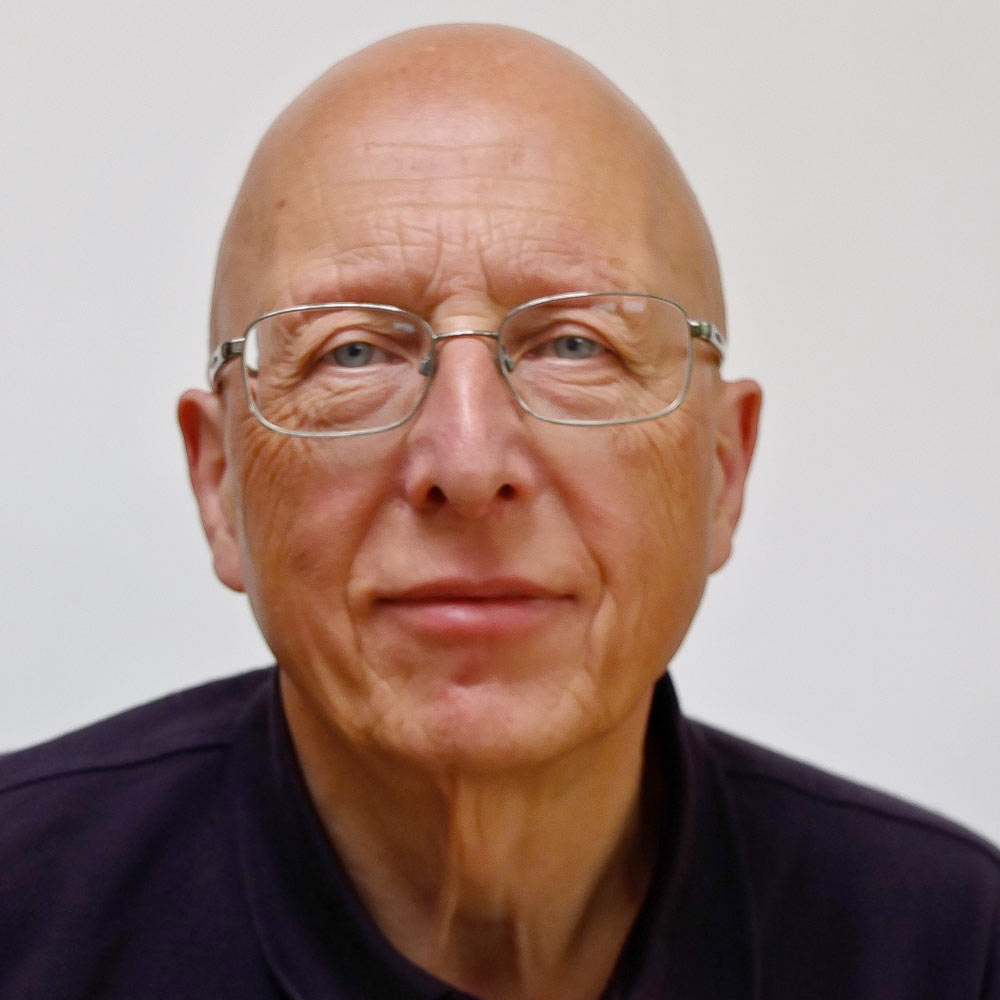Prof Michael Roper

-
Email
mrop@essex.ac.uk -
Location
5A.317, Colchester Campus
Profile
Biography
Michael is a cultural and social historian of Britain and Australia whose research centres on personal testimony and the family legacies of war in the twentieth century. He graduated with a BA Hons in History at Melbourne University, and an MA in History at Monash University, before coming to the UK on a Commonwealth Scholarship in 1985 to begin a PhD at Essex. His first book, Masculinity and the British Organization Man since 1945 was published by Oxford in 1994. He is co-editor (with John Tosh) of the collection Manful Assertions. Masculinities in Britain since 1800 (Routledge, 1991) and (with T. G. Ashplant and G. Dawson), The Politics of War Memory and Commemoration (Routledge, 2000). He has published a series of essays in History Workshop Journal, Cultural and Social History and other journals on the historical study of gender, subjectivity and emotions. His 2009 book, The Secret Battle. Emotional Survival in the Great War (Manchester) drew on letters, diaries and memoirs to investigate the relationships between young British civilian soldiers and their mothers. His latest book, Afterlives of War. A descendants’ history (Manchester, 2023), considers the family legacies of the First World War among generations in Australia, Britain and Germany who were born after the conflict. The book includes a case study of the First World War’s afterlife in his family in Australia. The research for Afterlives was supported by the British Academy, a Leverhulme Fellowship and AHRC/HLF funding from the First World War Engagement Centre 'Everyday Lives in War’. During the First World War Centenary Michael and Dr Rachel Duffett worked with the reminiscence arts organisation Age Exchange on family histories and legacies of the First World War. His current research is a history of empathetic listeners and listening in post-war Britain and Australia. The project investigates the emergence of expert listening cultures after 1945 that conceived of listening as a social, ethical and political good, from the non-directive listening techniques of Carl Rogers and their use in Marriage Guidance and other therapeutic organisations during the 1960s, through the rise of feminist and gay rights movements in the 1970s that sought to “give voice”, to reminiscence therapies and reconciliation movements in the 1980s and 90s based on the use of oral testimony. Michael is happy to supervise research students on topics such as trauma and inter-generational transmission; the memory and commemoration of war; subjectivity and emotion in historical study; interviewing and psycho-social methods; histories of oral history and the life-story interview in social science; therapeutic movements after 1945; and the use of psychoanalytic ideas ‘outside the clinic’.
Qualifications
-
BA hons. (Melbourne)
-
MA (Monash)
-
PhD (Essex)
Research and professional activities
Research interests
Subjectivity, testimony and memory
History of psychonalysis in Britain
Trauma and inter-generational transmission
Families and inter-generational relationships
Interviews, personal sources and research methods
War, memory and commemoration
Current research
Afterlives of the First World War
This research investigates the emotional impact of the First World War on children born in Britain and Australia after the conflict. These generations had no direct experience of the conflict, but their parents and grandparents carried its traces in their minds and on their bodies. The project focuses on three aspects of the war's legacy in relation to children. Firstly, it draws on oral history interviews with the 'second generation', children of First World War soldiers now aged in their late 80s and 90s. Secondly, it investigates how experts in child psychology, psychoanalysis and child guidance perceived the war's effects on children. Thirdly, it traces the war's influence on children's play and toy culture. The project aims to reconstruct, through family life, expert opinion and children's culture, the ways in which the First World War inhabited the lives of the successor generation. 'Afterlives' has received funding from the British Academy and Leverhulme Trust and is linked to the AHRC/HLF First World War Engagement Centre at the University of Hertfordshire, Everyday Lives in War. A video lecture on the research, 'Growing up in the aftermath: Childhood and family relationships between the wars', is available from the British Psychological Society. See also recent articles and journal publications.
Conferences and presentations
Oral History and Inner Life
Keynote presentation, European Society for the History of the Human Sciences, Colchester, United Kingdom, 27/6/2024
Imagining the Afterlife. Oral history and descendant testimonies of war
Invited presentation, Departmental Seminar, Monash University, Melbourne, Australia, 12/4/2024
Times told, times lived, and times of telling: temporality and life cycles in oral history
Invited presentation, Lifecycles seminar, Institute of Historical Research, Institue of Historical Research, London, United Kingdom, 6/3/2024
Family Histories Roundtable
Invited presentation, Institute of Historical Research, London, United Kingdom, 21/6/2023
Oral history and descendant testimonies of war
Invited presentation, Imagined Pasts workshop, Colchester, United Kingdom, 17/6/2023
The Evidence of Afterlives. Descendant Histories of the Great War
Keynote presentation, Languages, Texts and Society, University of Nottingham, January 2019, Nottingham, United Kingdom, 14/1/2019
Afterlives of the Great War. Descendants in the Cenenary
Keynote presentation, International Society for First World War Historians, Recording, Narrating and Archiving the First World War, Melbourne, July 2018., Melbourne, Australia, 9/7/2018
Little Ruby's hand: young women and caregiving in Britain after the First World War
Keynote presentation, Care After the First World War, Leeds, United Kingdom, 11/4/2018
The bush, the suburbs and the Long Great War: a family history
Keynote presentation, Voices of the Home Fronts, National Archives, September 2016., London, United Kingdom, 10/9/2016
The Long Great War: gender and family legacies
Keynote presentation, Gender, War and Memory in the Anglo-American World, Oxford, United States, 1/10/2015
Family histories and the emotional legacies of the Great War
Keynote presentation, War and Emotions Symposium, Melbourne Museum, Australia, September 2015, Melbourne, Australia, 17/9/2015
Children, Veterans and Domesticity in Britain after the Great War
Keynote presentation, History of Emotions Annual Lecture, Centre for the History of Emotions, London, United Kingdom, 26/11/2014
Concluding Roundtable, 'War. An Emotional History' conference
Keynote presentation, London, United Kingdom, 11/7/2014
'Growing up in the aftermath: Childhood and family relationships between the wars', British Psychological Society conference 'Stories of War, 'November 2014
United Kingdom, 2014
Subjectivities in the aftermath, Monash University, Australia, September 2014
Melbourne, Australia, 2014
'Child Psychology in Britain between the Wars', Georg Eckert Institute, Braunschweig, January 2014
Braunschweig, Germany, 2014
Keynote lecture, Commemorating the Disabled Soldier, Ypres/University of Leuven, November 2013
Leuven, Belgium, 2013
The psychological legacy of World War I for children, Emotions and Violence in 20th Century Europe, Max Planck Institute, Berlin, June 2013
Berlin, Germany, 2013
The Unconscious Work of Social History, Keynote address, Making sense of past emotions: a seminar on the History of Emotions, University of Copenhagen, May 2012
Copenhagen, Denmark, 2012
Wilfred Bion and the Nameless dread of trench warfare, Public Lecture, British Psychoanalytical Society, Applied Section, November 2011
United Kingdom, 2011
Subjectivities in the aftermath: the generation between in Britain, 1920-45, Keynote address, Aftershock: post-traumatic cultures since the First World War, University of Copenhagen, May 2013
Copenhagen, Denmark, 1920
'The Nervous Child and theShell-shocked Soldier: child psychology in the aftermath ofwar, Britain 1920-35',Psychoanalysis in the Age of Totalitarianism conference, September 2012
1920
Teaching and supervision
Current teaching responsibilities
-
Approaches to War, Culture and Society (HR962)
-
The Sociological Imagination (SC111)
-
The Age of Trauma (SC387)
Previous supervision

Degree subject: Sociology
Degree type: Doctor of Philosophy
Awarded date: 16/10/2024

Degree subject: Sociology
Degree type: Doctor of Philosophy
Awarded date: 26/7/2022

Degree subject: Sociology
Degree type: Doctor of Philosophy
Awarded date: 23/6/2022

Degree subject: Sociology
Degree type: Doctor of Philosophy
Awarded date: 24/7/2020

Degree subject: Sociology
Degree type: Doctor of Philosophy
Awarded date: 2/7/2019

Degree subject: Sociology
Degree type: Doctor of Philosophy
Awarded date: 18/1/2019

Degree subject: History
Degree type: Master of Philosophy
Awarded date: 17/9/2018

Degree subject: Sociology
Degree type: Doctor of Philosophy
Awarded date: 3/7/2017

Degree type: Master of Arts
Awarded date: 7/11/2013
Publications
Journal articles (24)
Bar-Haim, S. and Roper, M., In Conversation: Michael Roper speaks to Shaul Bar-Haim. Studies in the Maternal. 4 (2)
Roper, M., (2019). Karl Figlio, Remembering as Reparation: Psychoanalysis and Historical Memory. Psychoanalysis and History. 21 (3), 373-376
Roper, M. and Duffett, R., (2018). Family Legacies in the Centenary. Motives for First World War Commemoration among British and German Descendants. History and Memory. 30 (1), 76-115
Duffett, R. and Roper, M., (2018). Making Histories. The Meeting of German and British Descendants of First World War Veterans in ‘‘No Man’s Land,’’ Bavaria, 2016. The Public Historian. 40 (1), 13-33
Roper, M., (2018). The Bush, the Suburbs and the Long Great War. A Family Memoir. History Workshop Journal. 86 (86), 90-1163
Roper, M., (2017). Private Lives, Public History. Australian Historical Studies. 48 (2), 310-311
Roper, M., (2016). From the Shell-shocked Soldier to the Nervous Child: Psychoanalysis in the Aftermath of the First World War. Psychoanalysis and History. 18 (1), 39-69
Roper, M., (2015). Remembering Leonore Davidoff: Subjectivity inThicker than Water. History Workshop Journal. 80 (1), 329-334
Roper, M., (2014). The Unconscious Work of History. Cultural and Social History. 11 (2), 169-193
Roper, M., (2014). Book Review: Discourses Surrounding British Widows of the First World War by Angela Smith. War in History. 21 (3), 382-384
Roper, M., (2012). The LettersThe ‘Spear Head of an Advance’: Bion's Wartime Letters to Rickman. Psychoanalysis and History. 14 (1), 95-109
Roper, M., (2011). Nostalgia as an emotional experience in the Great War. The Historical Journal. 54 (02), 421-451
ROPER, M., (2011). NOSTALGIA AS AN EMOTIONAL EXPERIENCE IN THE GREAT WAR. The Historical Journal. 54 (2), 421-451
Roper, M., (2010). The Flyer: British Culture and the Royal Air Force, 1939-1945. The English Historical Review. CXXV (514), 778-780
Roper, M., (2007). Between the Psyche and the Social: Masculinity, Subjectivity and the First World War Veteran. Men's Studies Press. 15 (3), 251-270
Roper, M., (2005). Slipping Out of View: Subjectivity and Emotion in Gender History. History Workshop Journal. 59 (1), 57-72
Roper, M., (2005). Between Manliness and Masculinity: The “War Generation” and the Psychology of Fear in Britain, 1914–1950. Journal of British Studies. 44 (2), 343-362
Roper, M., (2005). History on the couch. Essays in history and psychoanalysis.. AUSTRALIAN HISTORICAL STUDIES. 37 (125), 154-156
Roper, M., (2003). Analysing the analysed: transference and counter-transference in the oral history encounter. The Journal of the Oral History Society. 31 (2), 20-32
Roper, M., (2001). Splitting in unsent letters: Writing as a social practice and a psychological activity. Social History. 26 (3), 318-339
Roper, M., (2001). Masculinity and the Biographical Meanings of Management Theory: Lyndall Urwick and the Making of Scientific Management in Inter‐war Britain. Gender, Work & Organization. 8 (2), 182-204
Roper, M., (2000). Re-remembering the Soldier Hero: the Psychic and Social Construction of Memory in Personal Narratives of the Great War. History Workshop Journal. 50 (1), 181-204
ROPER, M., (1990). REVIEWS. History Workshop Journal. 29 (1), 189-190
Roper, M., (1990). RECENT BOOKS ON MASCULINITY: Introduction. History Workshop Journal. 29 (1), 184-186
Books (6)
Roper, M., (2023). Afterlives of War A Descendants' History. Manchester University Press. 152615403X. 9781526154033
(2013). The Politics of War Memory and Commemoration. Routledge
Roper, M., (2010). The Secret Battle: Emotional survival in the great war. Mancherster University Press. 9780719083860
Ashplant, TG., Dawson, G. and Roper, M., (2004). Commemorating War: The Politics of Memory. Transaction Publishers. 9780765808158
Roper, M., (1994). Masculinity and the British Organization Man Since 1945. Oxford University Press (OUP). 978-0198256939
Roper, M. and Tosh, J., (1991). Manful Assertions. Masculinities in Britain since 1800. Routledge. 978-0415053235
Book chapters (9)
Roper, M., (2024). Reflection: Doing gender history and the history of masculinity. In: Men and Masculinities in Modern Britain A History for the Present. 249- 250
Roper, M., (2020). Little Ruby's Hand. Young women and the emotional experience of caregiving in Britain after the First World War. In: Total War An Emotional History. Editors: Noakes, L., Langhamer, C. and Siebrecht, C., . British Academy. 59- 77. 9780197266663
Roper, M., (2017). Subjectivities in the Aftermath: Children of Disabled Soldiers in Britain After the Great War. In: Psychological Trauma and the Legacies of the First World War. Editors: Crouthamel, J. and Leese, P., . Springer International Publishing. 165- 191. 9783319334752
Ashplant, TG., Dawson, G. and Roper, M., (2017). The politics of war memory and commemoration: Contexts, structures and dynamics. In: Commemorating War the Politics of Memory. 3- 85
Roper, M., (2013). Psychoanalysis and the Making of History. In: The SAGE Handbook of Historical Theory. SAGE Publications Ltd. 311- 325. 9781412931144
(2013). The politics of war memory and commemoration: contexts, structures and dynamics. In: The Politics of War Memory and Commemoration. Routledge. 17- 100
Roper, M., (2012). Beyond Containing: the First World War and the Psychoanalytic Theories of Wilfred Bion. In: History and Psyche: Culture, Psychoanalysis, and the Past. Editors: Alexander, S. and Taylor, B., . Palgrave Macmillan. 9780230113367
Roper, M., (2004). Maternal relations: moral manliness and emotional survival in letters home during the First World War. In: Masculinities in Politics and War: Gendering Modern History. Editors: Dudink, S., Hagermann, K. and Tosh, J., . Manchester University Press. 295- 315. 978-0719065217
Roper, M., (2004). Oral history. In: Social Science Encyclopedia. 698- 700
Grants and funding
2017
Everday Lives in War: First World War engagement Centre
Arts And Humanities Research Council
2016
Meeting in No Man's Land: German and British Elders Exchange Family History from the First World War
Arts And Humanities Research Council
Children, play, and the legacies of the Great War in Britain
Leverhulme Trust
2013
Central and Eastern England Regional Centre for Exploring the First World War
Arts And Humanities Research Council
2012
The Generation Between: growing up in the aftermath of war, Britain 1918-1939
The British Academy



